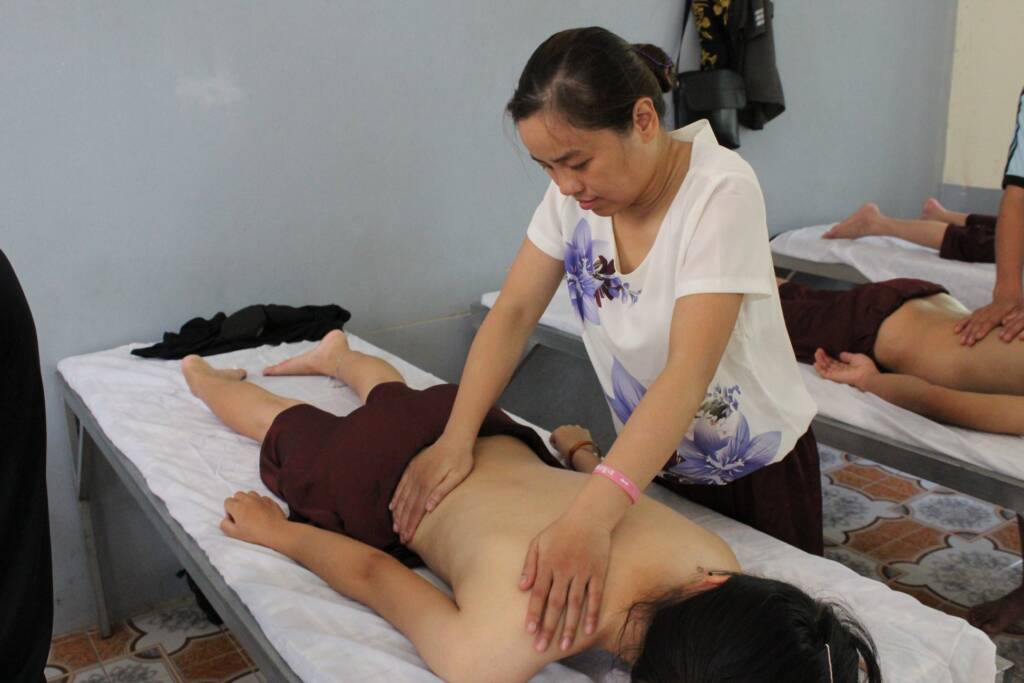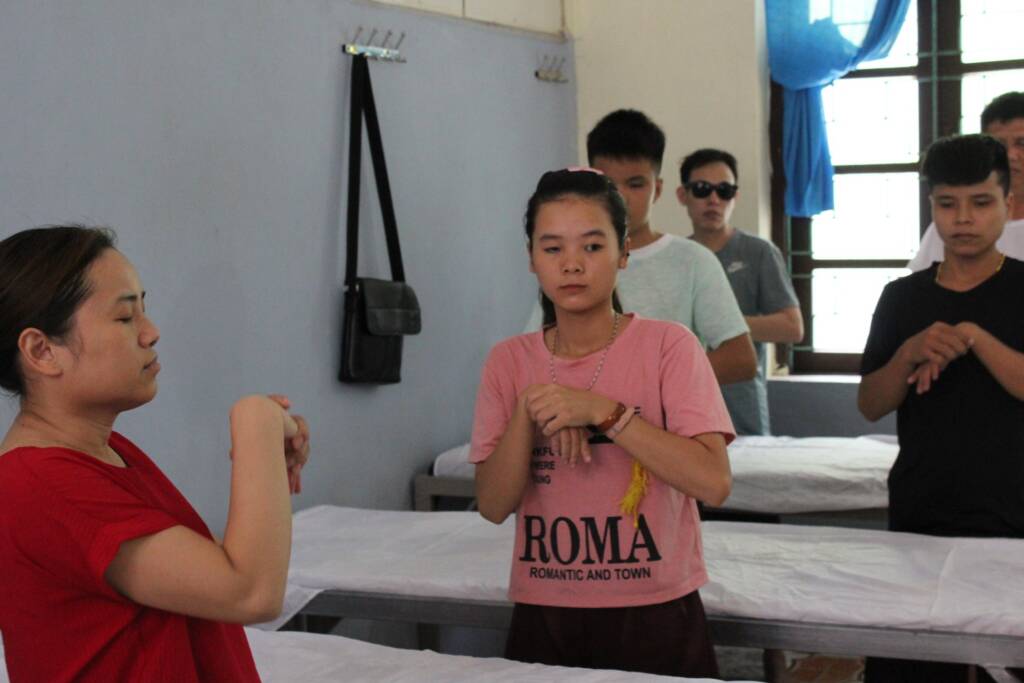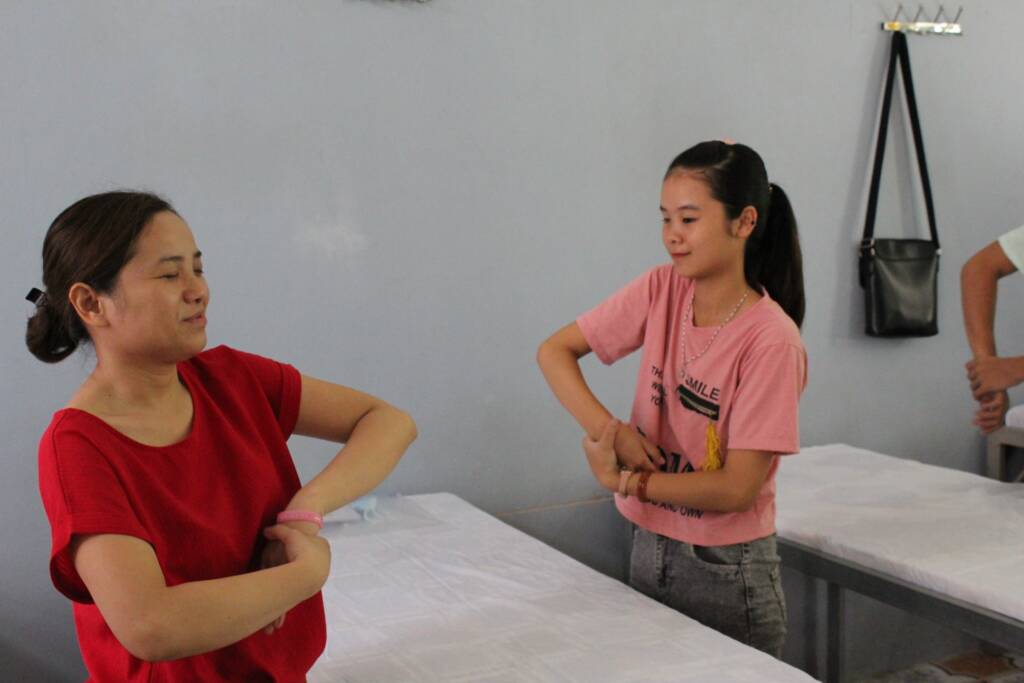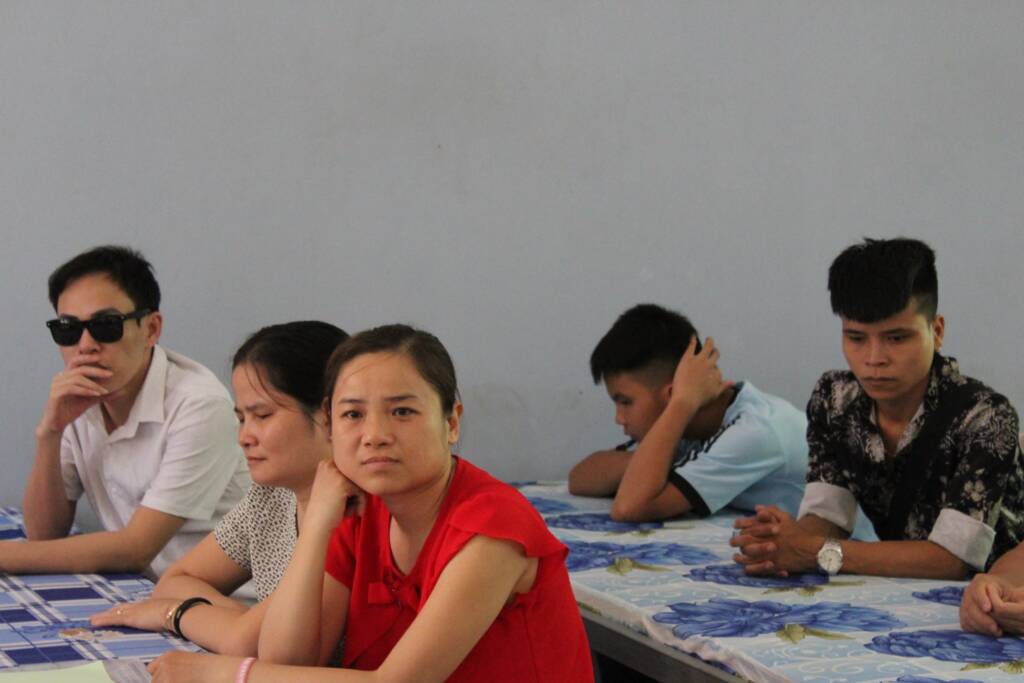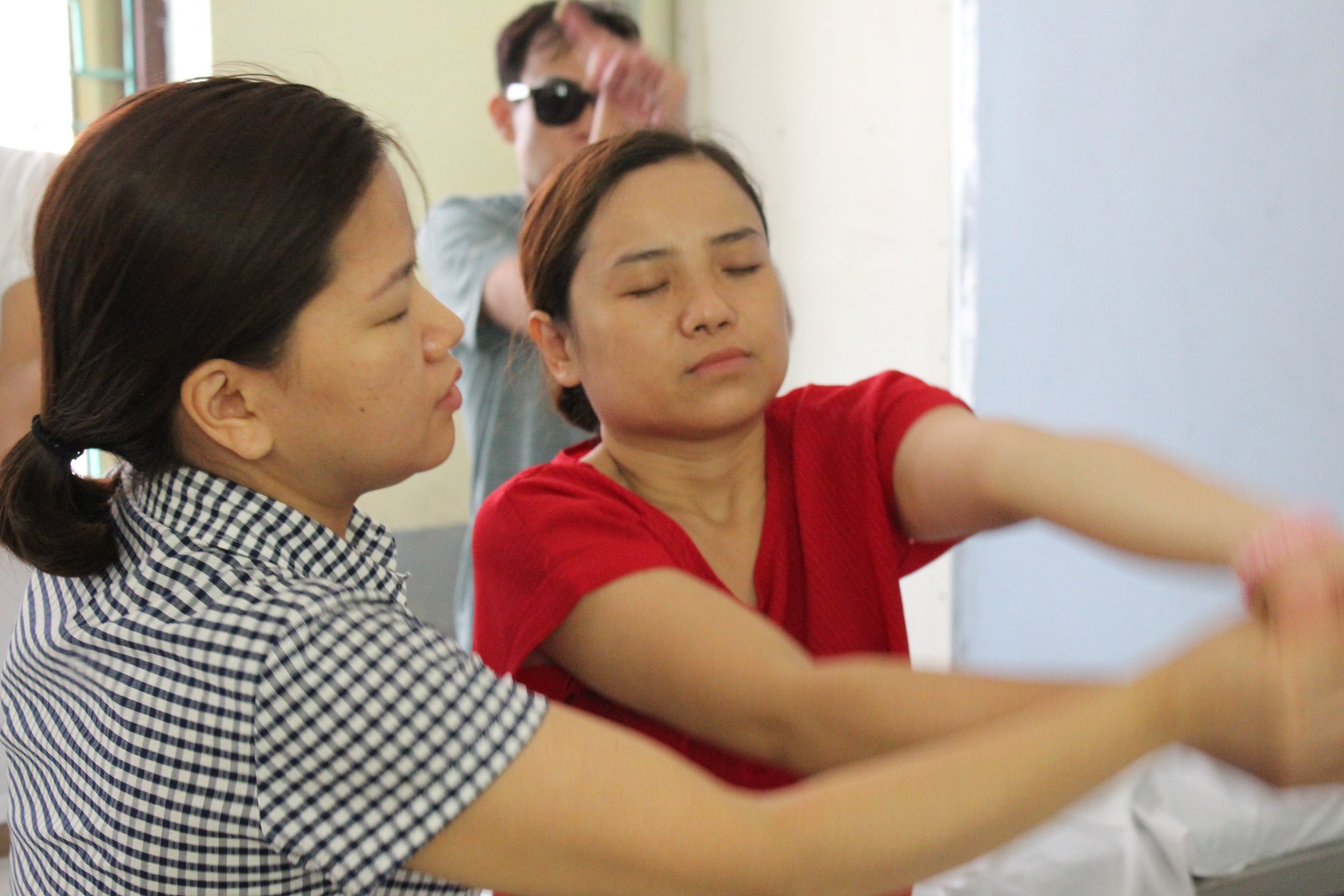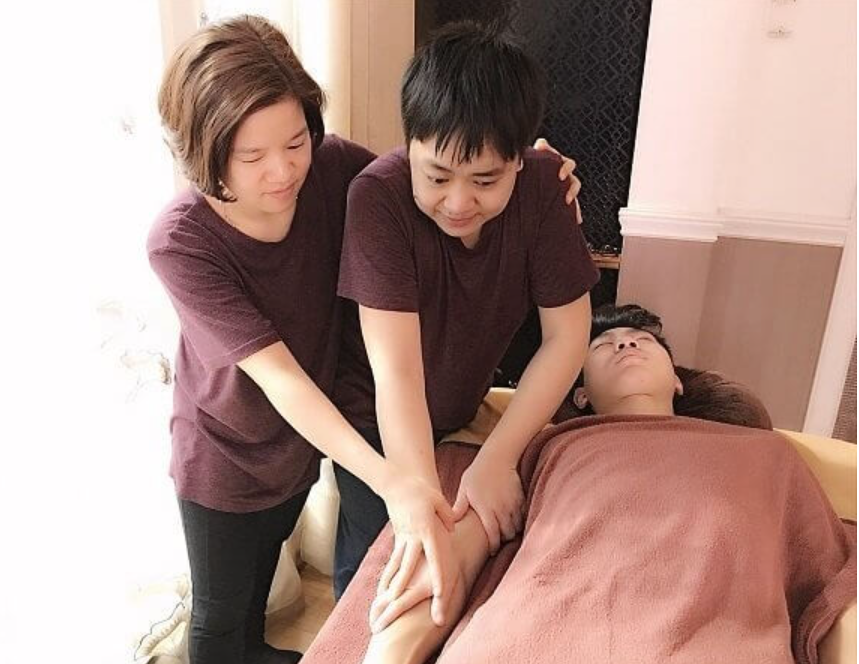Pham Thi Ha, 42, from Yen Ninh village in Ninh Binh Province, carries a quiet strength that belies a lifetime of overcoming obstacles. The eldest of four sisters, Ha’s early life saw her helping her parents, former factory workers who opened a small shop. Like many with mobility impairments in Vietnam, her main option after middle school was to become a garment worker.
Ha possessed immense talent for sewing, producing beautiful, intricate work. Her home-based shop was thriving, even attracting commissions from district officials. However, the rise of affordable, mass-produced clothing eventually made it impossible for small artisan shops like hers to compete. Ha made the difficult decision to close her store and take a job as a technician at a local garment company – a choice that would unexpectedly change the course of her life.
Despite her brittle bone disease, Ha never considered herself disabled and had no connections within the local disabled community. Then, one day at the factory, she saw two distressed disabled workers walk through the door. A year later, she met Truong, one of those workers, and through his introduction, she joined Ninh Binh’s Association of Disabled People.
Unlike the well-established Blind Association, which receives state funding, the Association of Disabled People operates without an official budget. Its development relies solely on the interest of local authorities, and in poorer areas, all activities are organized by dedicated volunteers.
Ha’s involvement with various “skill-enhancing” courses organized by NGOs in Hanoi and other provinces proved transformational. “They wore dresses, ao dai, pretty makeup; directly in contrast with disabled women in Ninh Binh,” Ha recounted. “In my hometown, they try their best to hide – in corners, in alleys -, invisible and forgotten.” This stark contrast ignited a fire in Ha. In 2015, she rallied disabled women in Yen Khanh district to establish the Yen Khanh Disabled Women Club, now boasting over 200 members. Their primary goal was to build a supportive community, share stories, and simply enjoy meeting twice a year, on International Women’s Day (March 8th) and Vietnamese Women’s Day (Oct. 20th).
Each meeting was a joyous occasion, filled with laughter, news, and shared tips on self-care. It was a moment where everyone felt happy and content. But as they gathered, Ha recognized a deeper, shared desire: the longing for stable jobs and daily work. Driven by this need, she tirelessly sought information within the network of disabled women in northern provinces like Hanoi, Hai Phong, and Quang Ninh.
Her persistence paid off when she met Ms. Quynh Nga, director of Pink Heart Cooperative, which produces wooden beads for items like bracelets and cushions. “Instantly liking this model, I decided to invest in a similar facility for the members of the club,” Ha explained. In May 2019, she undertook an apprenticeship at Pink Heart for technology transfer. By June 2019, she and a friend bravely invested over 300 million VND each to open a trade school for people with disabilities.
Tragically, their venture faced immediate and overwhelming challenges. By November 2019, they went bankrupt as their manufactured goods failed to sell, machines were repossessed, and the COVID-19 pandemic delivered a final, devastating blow to all their efforts.
Despite the setback, Ha refused to give up. Knowing how much the members valued having work, she stored the unsold wooden bead products and pivoted to broom production. Just two months later, they had sold an astonishing 3,500 brooms, primarily to schools in Ninh Binh. Ha had been inspired by the Vietnamese Blind’s tradition of making toothpicks, and thought of a similar awareness campaign. She went to the market, bought 1 million VND worth of brooms, and meticulously took them apart to study their construction. Their brooms incorporated two key modifications: using higher quality shafts (3,500 VND instead of 3,000 VND) and employing a double-knotting method for increased sturdiness, even if it used more material. Sold at the average price of 25,000 VND, their brooms found success, especially with the support of teachers at the start of the school year.
“I joined this Swedish massage training course organized by Omamori Spa in Ninh Binh province because I want to incorporate more business activities into our existing facility, thereby creating more jobs for members of the club,” Ha shared. “When I meet the teachers, I am inspired and have even bigger ambitions.” Her vision has expanded to establishing a cooperative for women with disabilities in Yen Khanh district. In the future, they plan to offer massage services in addition to broom production. Their ultimate goal is to obtain a full business license and secure a piece of land, rather than renting. “The road ahead of me feels more overwhelming, but I am very excited,” Ha says, her voice filled with newfound determination. “My life has never felt more meaningful than right now.”
